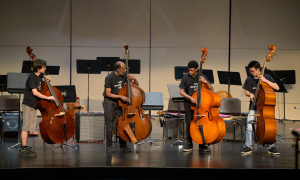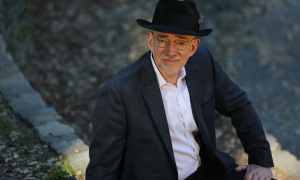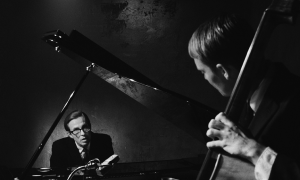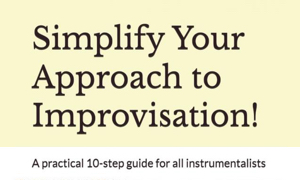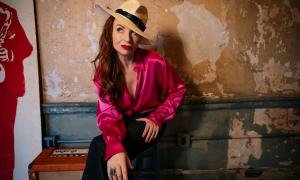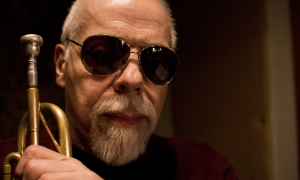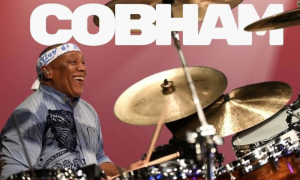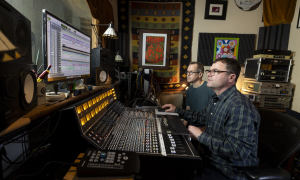
Drummer Adriano Santos grew up intently focused upon the thrill of music making, a fact that pushed him into a strong development. A diverse selection of listening surrounded Santos during his youth, ranging from his parents' collection of Brazilian classics to the hard rock of the day and cutting edge jazz fusion. With every successive musical exposure though, one thing became exceedingly apparent--Santos was deeply in love with the drums. His connection with the drum kit became even stronger when he attended CLAM--Centro Livre De Aprendizagem Musical--a top notch music school ran by the members of Brazil's legendary Zimbo Trio. Santos learned the fundamentals of his instrument here, but also gained valuable ensemble experience and exposure to jazz. With this schooling behind him, Santos knew that his future lie squarely in the music world, so he applied to the Berklee School Of Music. A move to the States opened Santos into a whole new world of music and an increasing recognition of the importance of his country's music. His technical skills increased through private studies, his knowledge of jazz grew, and his love for Brazilian music flourished. With a firm musical foundation, Santos stood poised to make a strong musical statement in the future.
Years later, Santos is one of New York's top drummers in the Brazilian Jazz scene and has recently stepped into the role of bandleader with his first album In Session. Still enthusiastic with his love for Brazilian Jazz, Santos has built upon his firm experience, creating a strong identity as an artist. In the first piece of a three-part interview with Santos, we discuss his early connection to the drum kit, his studies at The Zimbo Trio's music school, his move to Berklee, and more.
LATIN JAZZ CORNER: You were born in Sao Paulo in 1966, what initially got you into music?ADRIANO SANTOS: I was always very fond of the drums, since I was a kid. I remember when I was five or six years old, my parents and I used to go to a very famous shopping mall in Sao Paulo. There was this toy store in the building that had a drum set in the window. I remember that every time we would go to this shopping mall, I would run out of the car while my parents would be parking--I would run to the front of the store and be glued to the window, looking at the drum set. My parents would jump out of the car, and they would know where I would be. They would come straight to the store and I would be there looking at the drums, begging my father to buy the drum set.
Having two older brothers and older cousins, I was always exposed to a variety of music. My cousins used to listen to a lot of progressive rock like Led Zeppelin, Deep Purple, and all of the rock bands. My brother used to listen to a lot of Weather Report, John McLaughlin, and Jean-Luc Ponty. I also had a lot of Brazilian music that my parents used to listen to at home. So I was always exposed to a variety of music, and I always loved the drum set. Since I was a kid, I remember that the drums were my instrument.
I was trying to get to music school, but my mother didn't want to put me in a school to play an instrument. I was lucky enough that my aunt put my cousin in a music school --it was The Zimbo Trio's music school; they were a great band from the sixties and seventies. They have a great music school in Sao Paulo. My aunt put my cousin there to learn piano, and that was enough to convince my mother that it was O.K. to learn music. So I started to learn the drum set; I was 12 years old.
LJC: Was that your first jump into actually performing music?
AS: Exactly.
LJC: Can you tell us a little bit about The Zimbo Trio, how they influenced you, and what they did for Brazilian music?
AS: The Zimbo Trio is one of the most important groups from the sixties and seventies. I would say they were very famous of course. They were one of the best groups that traveled around the world with Brazilian artists. They did a lot of work with Elizeth Cardoso and also with Elis Regina. They took instrumental music to another level; they were considered the main group for instrumental music. They worked for TV Record, which was one of the most important T.V. stations in Brazil in 1965. They used to go on T.V. every week; they had a program where they brought Elis Regina and Jair Rodrigues to the audience. They were a big part of the development of instrumental music, especially because they were on the radio and T.V. all the time. They have a great school in Sao Paulo, and I had a chance to study with them.
With that exposure, I was able to study a lot of the repertoire from the bossa nova time. Amilton Godoy, the pianist, did great arrangements of bossa nova tunes that you would usually hear played with singers. They would take a lot of the bossa nova tunes and turn them into instrumental music.
LJC: Their school in Brazil, is it called CLAM?
AS: Yes, CLAM--Centro Livre De Aprendizagem Musical.
LJC: You were learning to play the drums, but what other things did you study there--what was the school like for you?
AS: The focus for me was the drums. I was twelve years old, so mainly I was studying drums. We were lucky that the bassist from Zimbo Trio, Luís Chaves, used to run ensemble classes also. When I got older and started to read music, I had a chance to participate in ensembles with other musicians. They had piano, they had saxophone, and guitar. Every year they would have a recital in the largest theater in Sao Paulo. After a few years when I was able to start reading music, I was able to participate in these ensembles. That was a good thing that exposed me to a lot of great music in the arrangements from Luís Chaves.
LJC: What sort of music were you playing?
AS: A lot of Brazilian music at the school. Outside, I was playing a lot of rock and roll. But at the school, it was mainly Brazilian music and some jazz standards sometimes. That was the beginning.
LJC: Did you gig on the Brazilian scene there in Sao Paulo?
AS: I left Brazil when I was 21 years old, so I actually didn't have the opportunity to work a lot there, in terms of being a musician like here in New York. Before I left Brazil, I played in a lot of rock and roll bands, garage bands. I was working in the underground scene in Sao Paulo, which was great also; it was very fun for me.
LJC: You went to Berklee in 1988 . . .
AS: Yeah, 1988, and it was funny, because three months after arriving there in Boston, people started calling me to do gigs. It was amazing; the first rehearsal that I had with this band, for the first gig that I was supposed to play, all the repertoire was the music that my father and my mom used to listen to at home. All the albums--Chico Buarque, Jobim, Elis Regina, and João Bosco--it was all the repertoire that my parents used to listen to at home and used to drive my brothers and myself out of the house. It was totally the same, so I knew all the tunes by heart. I started crying right in the middle of the rehearsal! It was kind of embarrassing, you know . . .
I was missing my family, and by listening and playing that music made me understand the power of Brazilian music, how powerful it was for me. That was definitely a turning point.
LJC: Was there a big appreciation for Brazilian music when you got there to Berklee?
AS: Yeah, it was a great, great period. There were a lot of Brazilian musicians and I was fortunate to work with a lot of students that were enrolling in the composition department. There were a lot of Brazilian groups at the time there in Boston. It was very nice.
LJC: What did you study while you were at Berklee and who were you studying with?
AS: The main guy was John Ramsay; he's the head of the percussion department nowadays. At that time, for the percussion program, I also had to study timpani and some classical instruments like vibraphone. So I had the opportunity to study with Dean Anderson, who was the percussionist for the Boston Pops. It was very tough--you had to learn a lot of classical repertoire and stuff like that. I also studied with Skip Hadden and Ed Uribe; there were a few great teachers there. But John Ramsay was the guy responsible for the drum set. He taught me all the rudiments and everything else, especially the Alan Dawson school. John studied with Alan Dawson a long time.
LJC: Berklee is a big jazz school--how big a part of the scene was jazz for you?
AS: It was great, because at the time, Berklee was not as big as it is today. When I arrived there, I was lucky enough to see Antonio Hart, Delfayo Marsalis, Danilo Perez, and a lot of these cats. They were living in Boston at that time. They were graduating, so they were still in the area. I was lucky--Geoffrey Keezer was there studying, Seamus Blake, Chris Cheek, Kurt Rosenwinkle, and Jeff Ballard were around. A lot of great young lions . . . Roy Hargrove was there too. So I was always in their recitals watching them playing. All the time I was trying to keep up with them and see what they were doing. All the time I was going to their gigs to see them playing.
In Boston, you have Ryles, the Regatta Bar and Scullers Jazz club. Every time you had some major name like Tony Williams or Elvin Jones come through, I would be there.







